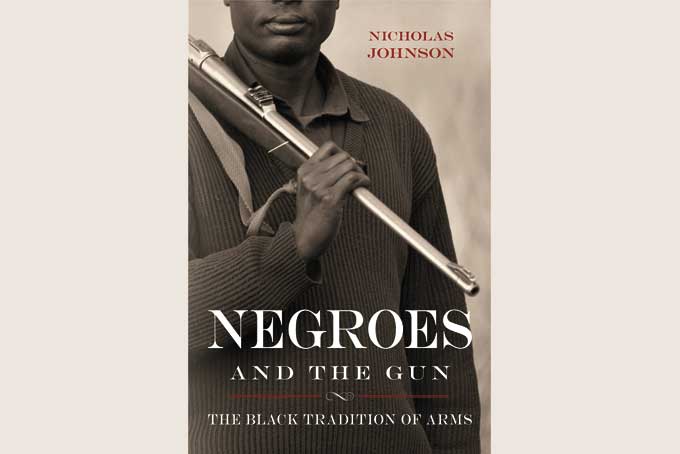
The headlines made you shake your head.
There was another shooting nearby the other night. Another senseless argument, another impulsive action, another life ended.
Sometimes, you wonder if things like that could’ve been prevented. But as you’ll see in “Negroes and the Gun: The Black Tradition of Arms” by Nicholas Johnson, history—both old and recent—has a lot of bearing on the bearing of arms.
Frederick Bailey had had enough.
He’d been raised as the slave-companion to a young white boy in a big-brother role and was “coddled.”
His owner, therefore, thought it best that the sometimes-impudent Frederick be sent away and “broken.”
But headstrong Frederick wouldn’t have any of that, and he fought back.
Frederick (Bailey) Douglass was “far from the first to fight,” says Johnson; in fact, both slaves and black freemen in the early-to-mid 1800s used guns to defend themselves. For that, “Punishment was swift.” Still, pre-Civil War records from Vicksburg, Mississippi show that slaves had “direct access” to firearms and that merchants who illegally sold guns to slaves were “periodically” prosecuted.
Later, when Lincoln opened the Union Army to “Negro soldiers,” Black men took up arms, “intent on proving themselves” and fighting for their freedom. Once the war was over, Black veterans petitioned Congress for their Second-Amendment rights to bear arms, and then for a Fourteenth Amendment.
Using their guns, Negroes helped settle the Old West by cowboyin’ and stagecoaching. The “color line became blurred” then as “red, Black, and White men mixed together, but it wasn’t just a man’s world.
“Stagecoach” Mary Fields (a.k.a. “Black Mary”) was known to be a better shot than any man in the state of Montana.
By the turn of the century, being armed was a near-necessity for many Negroes. It was a time of lynchings; race riots; Jim Crow laws; and occasional, surprising pockets of legal protection. Still, any white person who thought that a Black man or woman wouldn’t dare shoot in self-defense was woefully mistaken.
That sentiment was still around during the Civil Rights Movement, despite “cautions” against violence from Dr. Martin Luther King—and, once again, women took up arms, too. But by the mid-1970s, Black mayors and other officials were petitioning the government for a different action: to help take guns away from their Black constituents.
When I first started “Negroes and the Gun,” I figured that I was in for something dry and maybe a little boring.
I was wrong.
(“Negroes and the Gun: The Black Tradition of Arms” by Nicholas Johnson, c.2014, Prometheus Books, $19.95/ $21 Canada, 340 pages.)
